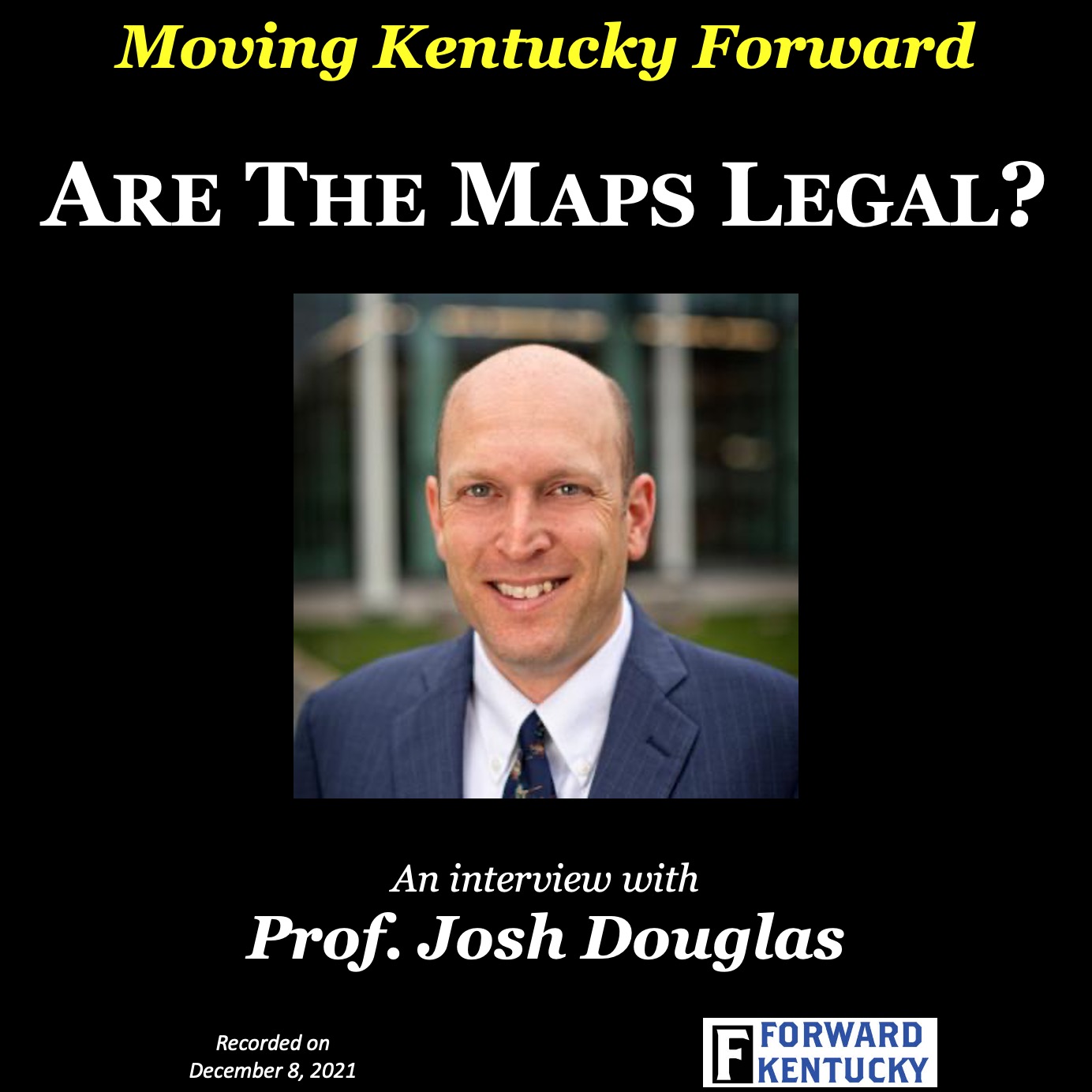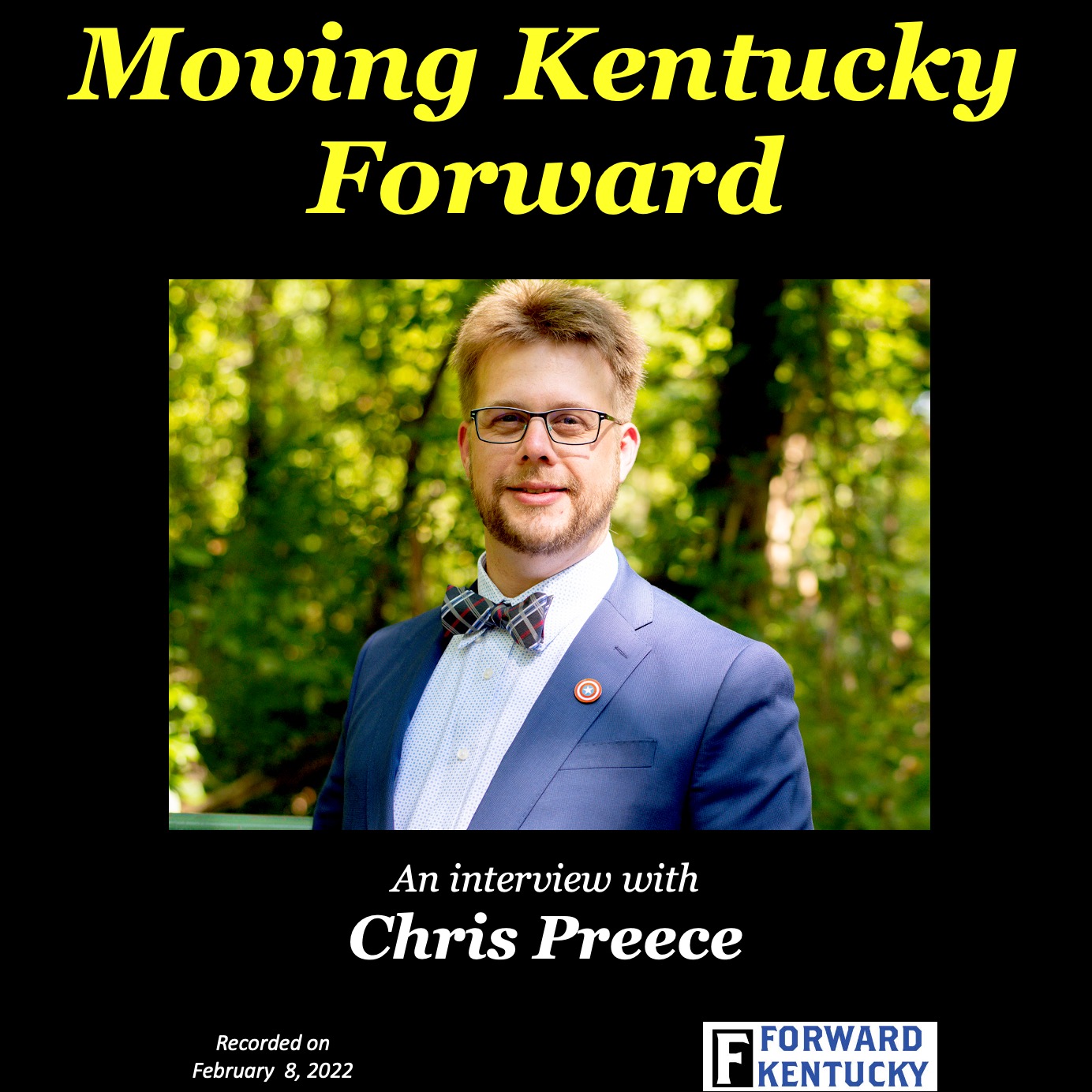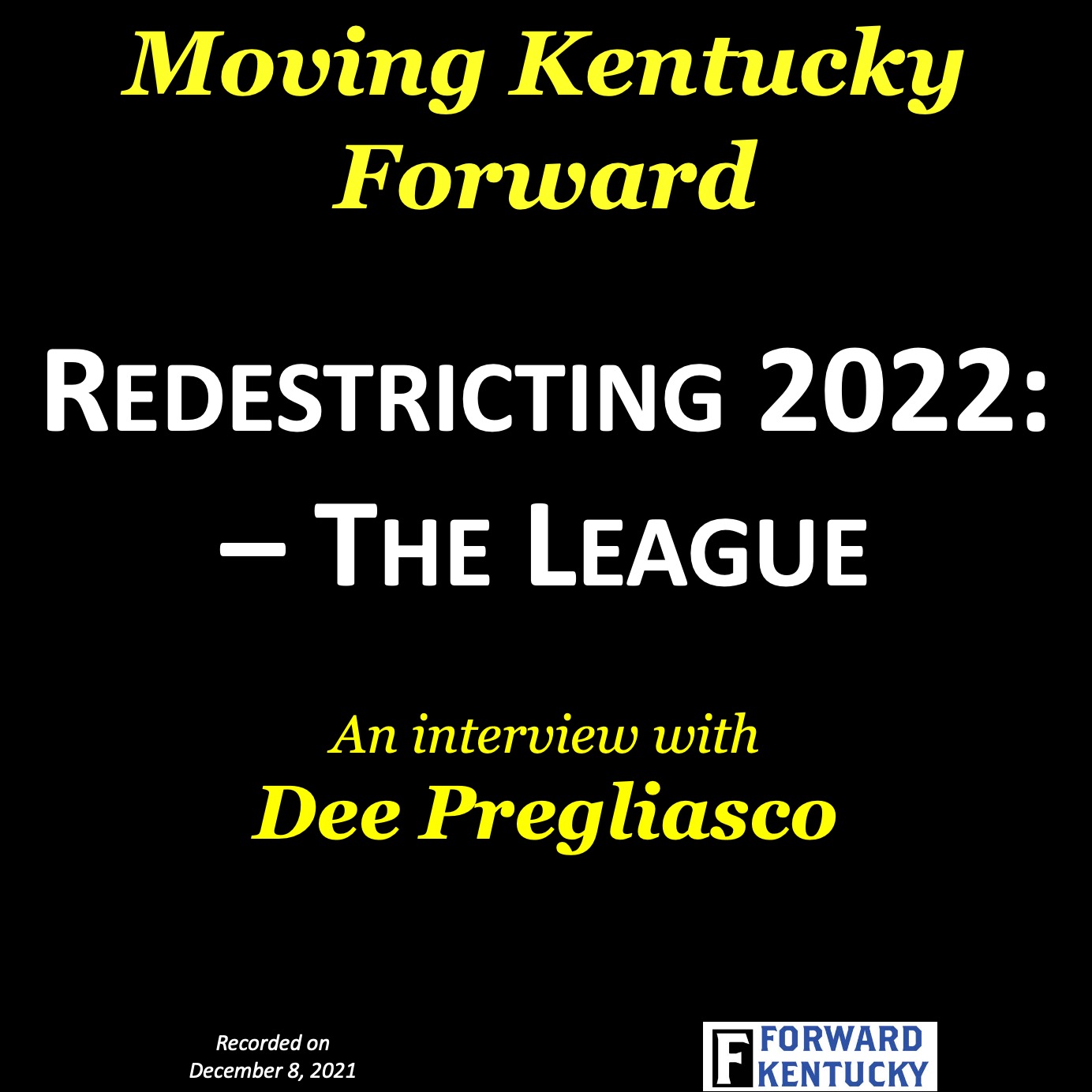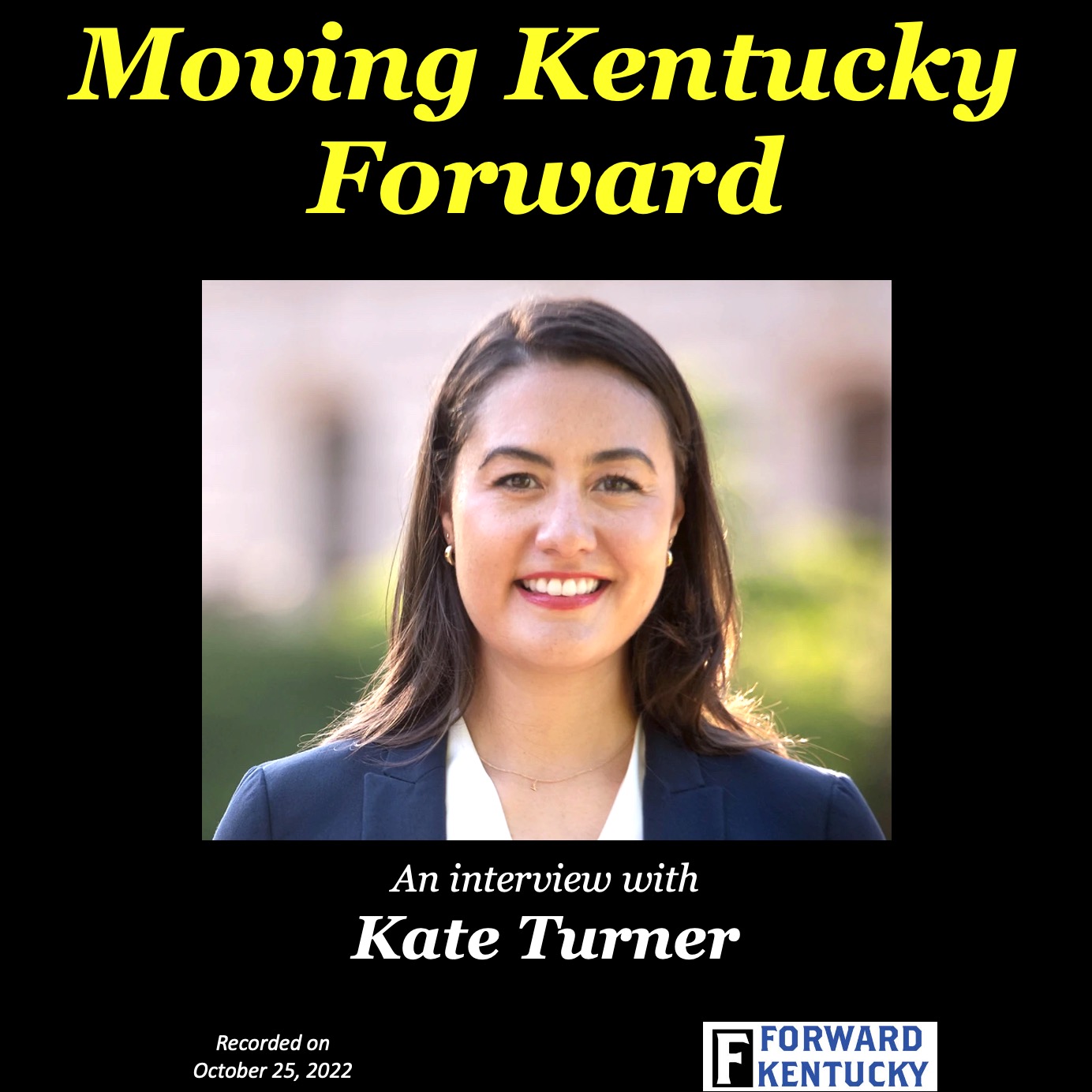Episode Transcript
Speaker 1 00:00:33 Hello and welcome to movie Kentucky forward. I'm Bruce Maples publisher forward Kentucky. We have interviewed a number of people over the last few months about redistricting here in Kentucky, and what's going on in the general assembly. But we are fortunate in this state to have a real expert on redistricting voting and elections. And that's professor Josh Douglas at the university of Kentucky. We were able to get some time with professor Douglas and he shared some very interesting things about the legality of these maps and whether they should or could be challenged in court. So let's listen to Josh Douglas. Talk to us about redistricting. I'm talking with professor Josh Douglas at the university of Kentucky who, uh, is an expert on voting, voting regulations, elections, so on and so forth. Uh, professor Douglas, welcome to move in Kentucky forward.
Speaker 2 00:01:29 Thank you for having me.
Speaker 1 00:01:31 I really appreciate you taking the time. I know it was a sudden ass, but, uh, it was sudden to see the districts go through to, uh, the maps have been passed and sent to the governor. I follow you on Twitter. And I noticed that you had some rather pointed remarks to make about the maps themselves, whether they were legal, whether they met the voting rights act and so on and so forth. So let's just cut right to it. If you were going to be in a courtroom talking about these maps, what would you point out as their deficiencies?
Speaker 2 00:02:03 Well, there's lots of things we could point to, um, with respect to their legal validity. Um, but the two would focus on would be first whether the maps comply with the Kentucky constitution, mandate that all elections shall be quote free and equal. Now, other courts in other states, North Carolina Supreme court, the Pennsylvania Supreme court have looked at similar language and their state constitutions saying that elections must be free and equal and found that maps that are just protecting incumbents and maps that are drawn purely with partisanship in mind are not ones that produce free and equal elections. And so those courts have struck down maps for being unlawful, partisan gerrymanders under the state constitution. And then the addition, I think there's a plausible claim to make that at least the house map here in Kentucky may violate the voting rights act. Now this isn't a slam dunk claim or case.
Speaker 2 00:03:04 I think there are certain weaknesses in the argument that they might violate the voting rights act as well as some strengths, but here's the bottom line. The voting rights act prohibits minority vote dilution that is making it such that minority groups have less influence in the political process. And don't have as much of an ability to elect members of their choice members who represent them. And the Kentucky house map that was passed by the legislature includes zero black majority districts. That is a district that has over 50% black individuals as a voting age majority. Um, it has three. What you call coalition districts were black individuals. Plus another group, uh, combined, uh, are above 50% and it's possible to draw a map with more black majority voting districts, the league of women voters. In fact, drew a proposed map that has three black majority districts in Louisville. Um, now there's some legal contours that we can talk about as to whether this is actually a viable claim or not, but that's the basics of it is that it's possible to draw a map that improves minority representation, uh, and the house map does not. And so there's a plausible legal claim that, that violates section two of the voting rights act.
Speaker 1 00:04:21 The ruling from the us Supreme court that basically said gerrymandering is not something the courts can deal with. At least the Supreme court said it couldn't deal with it. Does it then fall to the state Supreme courts to do the work? Is that what we're saying?
Speaker 2 00:04:39 Um, it depends on the claim, right? So w we just opened by talking about two very different kinds of claims. One is based on partisan gerrymandering that the lines are drawn, uh, to, uh, with a way that is thinking about politics too much in the way that the districts will perform. And the Supreme court in 2019 and a case called roadshow, uh, that came up from both North Carolina and Maryland ruled that federal courts cannot hear claims of partisan gerrymandering. So, yes, it's up to state courts now to look at those claims, which is why I brought up the Kentucky constitution. And that section that says all elections shall be free and equal when it comes to the voting rights act, though federal ports are still open to those kinds of claims. So it really just depends on the kind of claim that plaintiffs may choose to bring. And look, here's the other thing about the voting rights act claim? Um, it's possible that minorities in Louisville are perfectly fine with the coalition districts with having three districts. That minority is a majority, even though it's a combination of minority voters and Latino voters in those stressors. That's not for me to say. Um, what I can say from a legal matter is that given that it's possible to draw a majority black districts, there's a least a claim to be made, uh, that this map violates section two of the voting rights act.
Speaker 1 00:06:01 Another, uh, person we had on the show mentioned vote efficiency and talked about the higher, the inefficiency of a district. The more it was gerrymandered essentially, is that an argument that would work? It obviously wouldn't work at the federal level. Would that argument play into a state level challenge?
Speaker 2 00:06:27 Yeah, it works. Um, it's, this is, uh, one way of attacking partisan gerrymandering because you know what the U S Supreme court said is that, uh, although you may complain that the map is skewed towards one court party or the other, there aren't good metrics to measure that at least the court thought there are, or a majority of the court, I should say, uh, thought that there weren't good enough metrics. There weren't good enough ways to tell that, uh, that politics was used too much. So this efficiency gap measure is something that political scientists have come up with and it was presented to the Supreme court. The court rejected it, but other courts have, have agreed and looked at this efficiency gap measure. And it truly looks at how skewed is the drawing of the districts. If you had a fair map, that was that where politics was not one of the inputs, uh, in how the districts would perform, what would it look like? Would there be a huge U-turn Republican or democratic majority in the districts, just because that's how people live. And so there's kind of natural geographic gerrymandering, or the lines drawn to split up areas that are compacted with certain kinds of voters. And this efficiency gap measure can help, uh, tell you basically through math, uh, whether the map is skewed towards one side or the other. So that would be a viable piece of evidence to use in a state, a state law claim in state court.
Speaker 1 00:07:52 So the biggest complaint that I have heard from Democrats and progressives is the splitting of any number of small cities across the state where the small cities were becoming more democratic and by splitting them, supposedly they're diluting that's D I L U T I N G diluting. The votes is that, that doesn't sound to me like necessarily an argument that flies at any level.
Speaker 2 00:08:27 Well, I think it is a good argument that there's a lawful what's called cracking. So basically what happens is if you think of, you know, think of a piece of pie, right, where, uh, all of the voters let's say who are democratic, you know, a city like Louisville or Lexington or Covington, if you've dropped drew a circle around the city, you'd see that a large majority of the people there are democratic and what the line drivers do is they, they carved up that pie and drove a drew, a slice essentially through the city and dispersed the democratic voters in all different surrounding, uh, districts. Um, and so therefore it's harder for the Democrats to have a majority in any one. Um, and, uh, so this is another measure you can say there's been unlawful practicing, uh, and along with cracking comes tacking. So you pack as many of the opposition voters into a SU district as possible. So they can have a super majority in just one or two districts, and then you disperse the rest through cracking in surrounding districts. Um, and this is a, this is one of the key tools of a gerrymander. So, I mean, I think, uh, you'd need to tie that with some sort of metric like the efficiency gap, but it is a piece of evidence that can go into a claim under state court for partisan gerrymandering.
Speaker 1 00:09:46 Would you say that all three maps, congressional state, Senate state house are equally illegal or is, are some more illegal than others?
Speaker 2 00:09:58 I mean, it's depends on the claim you're going to bring, I mean, th the claims are very different for each of the maps. I'm not convinced certainly the congressional map. I don't think there's any voting rights act claim you could bring, um, because the state's population of minority voters is relatively small and there's only six districts. So there, you're going to have to attack the map under in state court under some, uh, you know, state court theory against partisan gerrymandering, you know, what they did with the first district to extend it all the way from Western Kentucky, uh, to Frankfurt is, you know, anyone who just looks at it would tell you that it's absurd. Uh, I posted on my Twitter feed, um, a picture of the very first gerrymander or the, where we got the word gerrymandering, a political cartoon involving governor Eldridge. Gary's how he actually pronounced his name.
Speaker 2 00:10:45 Um, and the cartoon that's looked at a map that was drawn to support his side, that looked like a salamander. Um, and the term is initially gerrymander has been turned to gerrymander. If you turn the Kentucky map on its side, the first district looks almost exactly like that cartoon salamander, um, uh, you know, it's, it's, it's, it's pretty amazing to see that. Um, so, you know, you'd have to have a theory under in state court, uh, and have the Kentucky Supreme court accept the theory under this free and equal elections, because for the congressional map, I think the house map is potentially, uh, open to attack under both the state constitution and maybe under the voting rights act. Um, the Senate map, it sounds like the democratic senators aren't that concerned about it. Um, I heard Morgan McGarvey. He said he didn't think that they were going to, uh, challenge the Senate map. Of course, anyone, uh, any, anybody, uh, in the state could bring a suit against the Senate map. Um, but again, it's not clear that there's, um, minority vote dilution within the Senate map. Um, or at least I have to look at the numbers more carefully and partially again, that's because of bigger districts, but, uh, there's a potential claim there again, uh, under the state constitution based on this packing and cracking.
Speaker 1 00:11:58 So one last question, or actually two last questions I had one person say to me, well, it might be okay to try and stop these maps for 22, but maybe we want to leave them in place for 24 and beyond because yes, they cracked a heavily democratic district and put those voters in two different districts and they're trending democratic anyway. So maybe we leave these maps alone and see what happens in 24 and 26, because those areas are going more democratic. And now they've put democratic voters in multiple districts. Do you have any thought about that?
Speaker 2 00:12:38 So, you know, for me, I'm not so concerned about the politics of this. Uh, there is, I think a question for lawyers as to, even if you were to bring these claims, you know, what's the remedy, are you, you know, go back and draw maps again, are you going to get any better mass and better representation from a politics standpoint for me, you know, as someone who studies on election lawn and wants fairness in our elections, and let's let everyone vote in fair districts and let the chips fall where they may, uh, it's more concerning that, uh, the districts are drawn to really protect incumbents. Um, and that that's clearly what's, what's in mind, you know, look at the congressional district, um, you know, the, an effort to protect, uh, Comber and the first district for checks, Andy BARR and the sixth congressional district. So, uh, you know, I can't really comment on the politics of it, but I also don't think that should not. I mean, I know in the real world it matters, but if we're going to be intellectually honest here, I think we should be considering the fairness of the mass, regardless of who wins or loses, uh, with respect to the politics of it.
Speaker 1 00:13:41 It would be interesting if the state Supreme court throughout the state maps and maybe even the congressional map and said, let's just use the league of women voters maps and let it go.
Speaker 2 00:13:54 Yeah. I mean, that map is obviously a lot more fair because they didn't think about incumbency whatsoever. Right.
Speaker 1 00:14:00 So my last question is, is there anything that I didn't ask you that you wish I had or anything you want to share that we haven't talked about?
Speaker 2 00:14:09 We also didn't talk about was the lack of transparency. Um, and I think this is, you know, a real stain on the legislature in producing maps behind closed doors, without any meaningful public input, releasing them and voting on them within just a matter of days, releasing the data about minority representation on the very same day that the legislature passed the maps on a weekend no less. And even now, you know, I hadn't, I looked at because I hadn't been yet. And I looked this morning to see if my own district can change. And, you know, I'm, uh, I study election law and it took me several like, uh, clicks. And I had to think about how to figure it out as to where my precinct is. It required me to know my leasing's name and then to go to the actual bill on the legislative research commission's website and do a fine for that precinct name and then figure out which districts, uh, it's in now.
Speaker 2 00:15:02 So, you know, the general public can't do that. They're not going to understand what a 70 some odd page list of precincts means. Um, many people probably don't even know the name of their precinct. Um, you can find it on your voter voter registration data for anyone who wants to go and look, um, but you know, this is not how democracy should work, where an election law professor, uh, has to think and take several cups clicks and, and, uh, struggled a little bit to figure out even what voting precinct he's going to be in under the new maps. Um, and so I think the process of this, uh, has also been really shameful and, uh, also counsels for a much better process and an independent system.
Speaker 1 00:15:41 I said it was my last question, but I just thought of something. Have you been contacted by anybody about being a witness in anything?
Speaker 2 00:15:47 No, I've, I've chatted with some people, but, but I think conversations are still pretty early as to whether and what kinds of claims might be brought.
Speaker 1 00:15:56 I had one person telling me that nothing could happen until after they were past sent to the governor. He vetoed them and they overrode the veto. And then you could challenge it as settled.
Speaker 2 00:16:07 That's right. Yeah. I mean, there's nothing to, nothing to Sue on right now because it's just technically still a proposal. It's not actually law yet. Once the governor vetoes and the legislature overrides, then it becomes law and then it becomes right for a potential challenge. So I know that our lawyers around the state, we're looking at this and getting ready for the inevitability of that happening, but it's too early to do anything yet, except for, you know, prepare
Speaker 1 00:16:32 Professor Douglas. Would you tell us your Twitter handle because I want to encourage everyone to go follow you on.
Speaker 2 00:16:38 Sure. Thanks. Thanks so much. It's at Joshua, a Douglas
Speaker 1 00:16:43 Joshua, a Douglas professor Douglas. Thank you so much for your time. I consider you one of the absolute best experts on this topic. Uh, especially since you're in Kentucky and I may reach out again, once we get some more movement,
Speaker 2 00:17:01 I really appreciate that sentiment. Thanks so much.
Speaker 1 00:17:03 That was professor Josh Douglas, talking to us about the recently released redistricting maps and whether or not they are legal under various laws and statutes. I really appreciate Dr. Douglas taking the time to be with us. And I really hope that you will go follow him on Twitter. Uh, his stuff is excellent and, uh, worth following one note about the podcast and the website. If you enjoy these podcasts, we are doing them now more frequently. And so you can always find them on our website. But the best thing to do is to follow the podcast, subscribe to the podcast, and the quickest way to do that is to go to forward K y.com and in the menu, you will see where to follow us and there's all the places can subscribe to the podcast. I encourage you to go do that. So you don't miss any of our episodes. Thanks again for listening. And we'll see you in the next contest.




